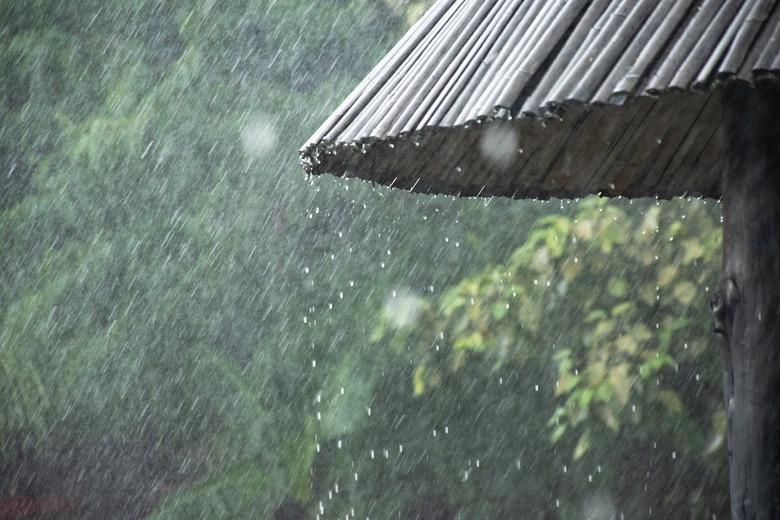Uses Of Rain Water
The lawn turns a vibrant green after steady rains replenish the soil after a drought. Flowers thrive in your gardens with daily watering. There is a difference between active watering with the hose attached to your home water supply and water supplied by nature. Water utility companies charge you with each gallon of water used around the home. Mother Nature doesn't charge you a thing when you collect your own rainwater for use around the home.
Harvesting Rainwater
Harvesting Rainwater
Before considering the uses of rainwater, consider exactly how this water source can be gathered for use around the home. Rain barrels capture water from the roof of your home, depositing the water into a catch basin or barrel. This simple system requires a basic purchase of a rainwater barrel at your local garden center. Barrels come with instructions to help you get started collecting your rainwater harvest.
Cisterns
Cisterns
Cisterns use gravity to encourage water flow. Early toilets used cisterns as water collection basins, where users pulled a chain attached to a plug housed in a raised holding tank. Water flowed into the toilet to clean the basin. Cisterns can be placed into the ground for rainwater collection and feature pumps and piping to supply water for varied uses.
Lawn and Garden
Lawn and Garden
Fresh water refers to the potable (drinkable) water in our homes. You can use this treated water for washing clothes, bathing, drinking and cooking. This choice offers homeowners a convenient choice water for use around the home. However, homeowners see a 40 percent increase in home water usage during the summer months, due to watering of lawns and gardens. Catching rainwater for use around the exterior of the home provides a viable and affordable alternative to using fresh water. In addition, rainwater contains none of the chemicals we often see in our home water supply, allowing for better absorption by plants, trees and shrubs.
Laundry
Laundry
Fresh rainwater can be used to safely wash clothing. Choosing to use rainwater for laundering clothing requires the introduction of a system within your home that allows use of this low-mineral alternative to potable water. These systems are commonly used in island or arid areas with limited water availability. Using rainwater for laundry conserves a precious resource and provides a viable alternative for uses of laundry waste water.
Grey Water
Grey Water
Used laundry, bathing and dishwasher water is called grey water. Grey water includes all waste water except sewage, which is called black water. Grey water can be applied to gardens and lawns and be used to wash vehicles. Grey water also can be used in place of potable water for flushing toilets. Consider that using harvested rainwater to wash clothing, dishes and humans and then reusing the grey water again around the exterior of your home creates an optimal situation using this valued resource to its fullest. Grey water use requires installation of a special system to collect and filter this waste water for future use around your home.
Cite This Article
MLA
Heron, S.F.. "Uses Of Rain Water" sciencing.com, https://www.sciencing.com/uses-rain-water-5371544/. 22 November 2019.
APA
Heron, S.F.. (2019, November 22). Uses Of Rain Water. sciencing.com. Retrieved from https://www.sciencing.com/uses-rain-water-5371544/
Chicago
Heron, S.F.. Uses Of Rain Water last modified March 24, 2022. https://www.sciencing.com/uses-rain-water-5371544/
